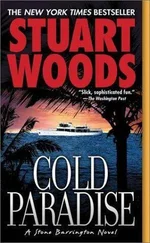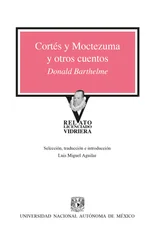“So?” Simon says.
“I identify with that.”
Late at night she sits with Simon drinking a Dos Equis and listening to Horace Silver.
“You’re the mother of these guys,” he says.
“I’m not. Last among equals.”
“Veronica’s a handful.”
“She’s her own person. I admire her. She’s the smartest.”
“How long have you three known each other?”
Dore giggles. “We all worked for a retail outlet in Denver. It was called Frederick’s of Hollywood of Denver. It had nothing to do with the real Frederick’s of Hollywood.”
“Is that clothes?”
“Yes. Clothes.”
Dore knows one trick which may one day place her among the world’s managers, how to walk. Dore always walks briskly, head up, arms swinging in good military style, moving from one very important assignment to the next, a bit rushed, look-what-those-apes-in-Purchasing-have-done-to-us-now. Simon, having spent some time in large organizations, understands what Dore’s walk means, can appreciate its brittle bouncy R.A.F. authority. Veronica dawdles and Anne lurches, although at moments of confusion all lurch, banging into each other as if blindfolded. Simon shambles.
Veronica is often out on mysterious errands which the others do not comment upon. What is she doing? Simon tries not to think about this — it’s none of his business — but he can’t help speculating. Is she taking a shift as a blackjack dealer in Atlantic City? Loading container ships in Hoboken? Re-fletching arrows at the Museum of the American Indian? Pushing commodities in a bucket shop on Varick Street? The darker possibilities he refuses to contemplate. She enters in a flurry, having missed dinner, and declares she’s starving. Simon plops a stuffed pork chop on her plate, wild rice, white asparagus. Dore and Anne scarcely notice her, they’re talking about life after death.
“No way,” Anne says, “do I want to live after death. It’s hard enough as it is.”
“But you’re not close to the end yet,” says Dore. “The end is not near. When the end is near, you may feel differently.”
“I doubt it. An eternity of keeping the armpits tidy? No thank you.”
“The grave’s a fine and quiet place. That’s not it. The grave’s a fine and pleasant place. That’s not it. What is it, Simon?”
“Don’t know.”
“Private,” says Veronica. “The grave’s a fine and private place. I remember that one. He goes on to say that there’s no sex in the grave.”
“But what if you leap over the grave and into something new? Something that has been imagined only by saints and mendicant friars in their robes of grass and rope?”
“Like what?” Anne says. “Some kind of church thing? I never did like church.”
“Church is punishment for our sins,” Dore says, “everybody knows that. The only question is whether by the time you die you’ve done enough church to be punished enough.”
“I haven’t,” Veronica says. “I dropped out when I was ten. Actually they asked my mother to leave because she was living in sin with my father and had been for ten years and they decided it was too flagrant.”
“What denomination was that?” Anne asks.
“Assembly of God. Their motto was ‘The Fellowship of Excitement.’ It was very exciting when they threw my mother out. A committee called on her and told her. There were three men and two women. She served apple juice and chocolate-chip cookies. All she said afterward was that it was a waste of apple juice.”
“I kind of liked it,” Dore said. “I guess it was my authoritarian personality. We were Lutheran. A rare bunch, the Lutherans, they take everything very seriously. What were you, Simon?”
“A simple Presbyterian.”
Veronica places five hundred-dollar bills on the table. “A little contribution to the household economy.”
“Where in the world did you get that?”
“It wasn’t hooking.”
“So, where?”
“O.T.B.”
“You bastard! What was the horse?”
“Crushed Rose.”
Simon buys an artwork. The artwork is a print by the artist John Chamberlain and depicts a lot of automobile bumpers smashed together into a sculptural block. It’s very small, ten inches square, modestly framed. He has trouble placing it on the big empty walls of the apartment; wherever he puts it, it looks ridiculous. Finally he hangs it by the front door.
Anne looks at it. “What’s that?”
“A print.”
“Who by?”
“Guy named Chamberlain.”
“Not very big.”
“No it’s not.”
She moves closer for a good look. “Car bumpers.”
“Yes.”
“I like it.”
“So do I.”
“Terribly small. For this big wall.”
“This is not the Frick.”
“Looks funny all alone like that.”
“A brave little picture. Holds the wall.”
“I guess if you like it and I like it, that’s all that counts.”
She turns and holds out her hand.
“Sweet of you to try.”
“We can get more. One of these days.”
“Maybe just have this one. Symbolizing the situation.”
“What do you mean by the situation?”
“We have hot dogs for dinner.”
“How did you know I wanted hot dogs?”
“I just intuited it.”
“Getting pretty domestic around here.”
She’s flipping a kitchen knife around and catching it by the blade in a dangerous manner.
“I guess. Still, we know the truth.”
Sarah calls.
“Who was that who answered the phone?” she asks.
“That was Anne.”
“Who’s she?”
“A guest. I was in the kitchen.”
“Bluebeard.”
“How are you?”
“I got a new typewriter.”
“What kind?”
“Smith-Corona. It can spell fifty thousand words right.”
“More than I can spell right.”
“Me too. I got pregnant. Mom tell you?”
“No. She didn’t.”
“Then I spontaneously aborted. Last month.”
“She should have told me. Or you should have told me.”
“No big deal.”
“This the guy from Finland?”
“Yeah. He went back.”
“His reindeer were on fire.”
“He was going back anyhow. I told him to go.”
“How do you feel?”
“I’m not having world-class luck.”
“Probably there’s something wrong with you,” Simon says. “Some kind of character flaw, final and ineradicable.”
“That’s it,” she says. “You coming home any time soon?”
“It’ll be a while yet,” he says. “Sweetie, you can come over here. Whenever you want.”
“Scared of what I might see,” she says. “So long.”
Simon remembered Sarah screaming when he tried to turn off the television set. The thing had captured her and anyone who laid a hand on it was subject to a full-scale tantrum with kettle drums and cannon. She was, for some reason, inordinately fond of Daffy Duck, although the Road Runner was also a favorite. She was queenly in expressing herself. At two, she produced a sentence that Simon still marveled at. When events were not marching to her satisfaction she would say, gravely, “ You are making me angry.” After this sentence joined the household’s sentence-hoard Simon ceased to worry about language acquisition. In the early mornings she would rush into the bedroom and climb into bed with Simon and his wife, settling in between them with soft little groans of satisfaction. When she grew up, she said, she wanted to be a ballerina. Her mother made her a tutu out of some pink gauzy material and she pranced about the house in this, white Danskins, and a cardboard tiara on which gold stars had been pasted, exhibiting all the grace of a tall gesturing cactus. When she was fourteen she was picked up for shoplifting, frightened as thoroughly as possible, and released. The item in question was a tube of lip gloss called Penumbra.
Читать дальше












